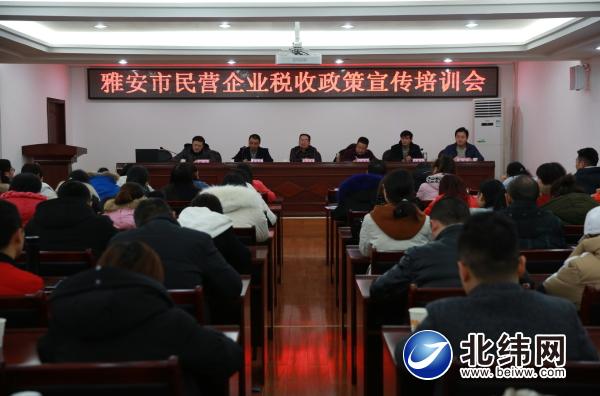How Congress can preempt the next Supreme Court term’s most dangerous possible ruling.
In a one-line order last week, the Supreme Court planted a ticking time bomb that now threatens American democracy. The court agreed to hear a case in which North Carolina legislative leaders argue that state legislatures should be free to regulate congressional elections without any constraints from other state actors. If adopted, this position would revive the Republican gerrymander of North Carolina’s congressional districts, which a state court struck down on state constitutional grounds. In other cases, this position would mean that state legislatures could subvert congressional elections without pushback from governors, state courts, or even state electorates.
Fortunately, Congress doesn’t have to sit back and wait for the court’s next potential blow against democracy. Under the same constitutional provision invoked by North Carolina’s politicians, Congress can indisputably nullify their claim of absolute electoral power—and all others like it. That provision is the elections clause of Article I. North Carolina’s politicians fixate on the first half of the clause, which says that “the Legislature” of each state shall regulate the “Times, Places and Manner” of congressional elections. But the clause’s second half authorizes Congress to override any state policies about congressional elections with which it disagrees. “Congress may at any time … make or alter such Regulations.”
To nip the North Carolina case in the bud, then, all Congress has to do is pass a short statute ratifying all state regulations of congressional elections that are compliant with state constitutions. State constitutions commonly give regulatory roles to many nonlegislative actors: governors who can veto bills, state courts who can review laws’ constitutionality, bureaucrats who can set certain policies, even voters who can launch initiatives. Under the proposed statute, all these actors’ efforts would be immunized against North Carolina–style challenges. That’s because gubernatorial vetoes, state court decisions, state agency rules, and voter initiatives would all now have the imprimatur of federal law. So if a state legislature objected to any of these actions, the resulting clash would no longer be between that body and another state actor—a battle at least four Supreme Court justices likely think the legislature should win. Instead, the dispute would be between the legislature and federal law, which would plainly trump that body’s preferences.
Advertisement Advertisement Advertisement AdvertisementIf Congress wanted to pack more of a punch, it could also try to ratify all state regulations of presidential elections. In that case, the statute would aim to neutralize state legislative complaints about state courts or state agencies making decisions about presidential races. It would also hope to foil state legislative schemes to appoint presidential electors unilaterally, in violation of state law. In other words, the statute would seek to pull the rug from under many of the strategies that Donald Trump deployed after losing the 2020 election. The odds of another coup attempt disguised by a patina of legal argument would thus decline sharply.
To pass the statute, Democrats would have to either amend the filibuster—an unlikely scenario at this point—or win the support of several Senate Republicans. This second avenue is more plausible than it sounds. Some Republican senators might be interested for the same reason they’re likely to agree to revisions of the Electoral Count Act: avoiding a rerun of the tragic events that followed the 2020 election. The Electoral Count Act’s ambiguities contributed to the election’s grim aftermath by seeming to allow the vice president to reject properly certified slates of electors. Just as responsible for these developments was the idea that state legislatures can do whatever they want with respect to presidential elections. The statute would squelch that idea once and for all. (To ease passage, it could even be incorporated into the Electoral Count Act amendments.)
Advertisement AdvertisementRaw partisanship might be another impetus for Senate Republicans to act. If accepted, North Carolina’s claim would open the door to brutal Democratic gerrymanders in California, Colorado, Maryland, New York, and Washington. In all these states, Democratic legislators are currently blocked from crafting advantageous maps by independent commissions or state constitutional provisions. Combined, these states’ congressional seats far outnumber the seats of states where Republican legislators are the ones barred from gerrymandering by state law. So at least in terms of redistricting, it’s Democrats who would be the big winners of a ruling that state legislatures can draw the lines however they like. That the North Carolina case happens to be brought by Republicans doesn’t change that fact.
Advertisement AdvertisementThe Senate is one audience; the right-wing Supreme Court is another. Would the court allow Congress to countermand state legislative choices about federal elections? In a 2013 decision authored by conservative patron saint Justice Antonin Scalia, the court did just that. The Arizona Legislature tried to require people to show proof of citizenship when they registered to vote. The court held that this requirement was preempted by the National Voter Registration Act, which permits people to register after completing a form that doesn’t ask for citizenship documentation. Congress, the court explained, can “preempt state legislative choices” as it sees fit. Congress’ power over federal elections is “paramount” and so “supersede[s]” any “inconsistent” state legislative policies.
Advertisement AdvertisementIf anything, a statute ratifying all state regulations of federal elections would present an easier case. The National Voter Registration Act significantly changedthe legal status quo. In the court’s words, it “erected a complex superstructure of federal regulation atop state voter-registration systems.” In contrast, the suggested statute would perfectly preservethe existing legal order. However state constitutions distribute authority among legislatures, governors, courts, agencies, and voters would be respected—in fact, codified—by Congress. The statute’s only impact would be to stop legislatures like North Carolina’s from asserting that their wishes must prevail over those of all other state actors.
AdvertisementPopular in News & Politics
- Sure Sounds Like the Supreme Court Is About to Give Trump a Big Win!
- Trump Is Trying Something New With the 2024 Campaign. It’s Smart—and Terrifying.
- Did That Have to Happen at Columbia? No. Just Look at What Happened at Brown.
- We Can Learn a Lot From the Weird Crew That Keeps Showing Up to Trump’s Trial
To be sure, extending the statute to presidential elections is legally murky. On the one hand, the Supreme Court long ago rejected the view that “Congress has less power over the conduct of presidential elections than it has over congressional elections.” On the other, the language of Article II does support a distinction between these contexts. Unlike the elections clause of Article I, the electors clause of Article II only enables Congress to “determine the Time” of presidential elections. It wouldn’t be hard for a textually minded court to conclude that, while Congress has near-plenary authority over congressional elections, its ability to regulate presidential elections is more limited.
But this possibility hardly dooms this project. For one thing, the court might choose to respect its precedent about the symmetry of Congress’ powers over congressional and presidential elections. More importantly, it’s the North Carolina case that’s the imminent threat to American democracy, and that suit involves only congressional elections. Even if Congress can’t respond to every other danger, it can at least defuse this bomb.
Tweet Share Share Comment(责任编辑:资讯)
Upgrade Your Monitor, Not Your GPU
 Dog takes bite out of the mic during big local news interview
Dog takes bite out of the mic during big local news interview North Korea reinstates mask mandate amid fears of winter twindemic
North Korea reinstates mask mandate amid fears of winter twindemic North Korea says UN human rights expert is 'US puppet'
North Korea says UN human rights expert is 'US puppet' Table tennis star Shin Yu
Table tennis star Shin Yu
- Microwave technique recovers 87% of batteries' lithium in 15 minutes
- 我市举行民营企业税收政策宣传培训会
- Satellite imagery shows flood damage at NK's nuclear test site: Beyond Parallel
- Working From Home Effectively: Dos and Don'ts
- 广东超一半的北运淡水鱼来自这里!全链发力打响“南海鱼”金字招牌
- Zoom launches new marketplace to charge for virtual events
- 11 gifts to get kids interested in STEM
- S. Korea, US to craft 'tailored' responses to potential nuclear crises: defense chief
-
2016's $400 GPU vs. 2019's $400 GPUs
Something we've been hearing a lot this year is that PC gaming is not in great shape, how there's a ...[详细]
-
Trump tweets joke story about Twitter shutting down for Biden, talks about it as if it's real
 The Twitter blunders from president Trump just keep coming. On Friday, Trump retweeted a story from
...[详细]
The Twitter blunders from president Trump just keep coming. On Friday, Trump retweeted a story from
...[详细]
-
North Korea says UN human rights expert is 'US puppet'
 Elizabeth Salmon, U.N. special rapporteur for North Korea's human rights, speaks during a press conf
...[详细]
Elizabeth Salmon, U.N. special rapporteur for North Korea's human rights, speaks during a press conf
...[详细]
-
Zoom launches new marketplace to charge for virtual events
 Between work meetings, kids' lessons, and chatting with friends and family, most people are feeling
...[详细]
Between work meetings, kids' lessons, and chatting with friends and family, most people are feeling
...[详细]
-
10 Places to Get to Know Paul Bunyan
 Paul Bunyan, a larger-than-life lumberjack with super-human strength, was a character created by Can
...[详细]
Paul Bunyan, a larger-than-life lumberjack with super-human strength, was a character created by Can
...[详细]
-
North Korea fires 2 missiles into East Sea in latest show of force
 North Korea's KN-23 short-range ballistic missile, similar to the Russian Iskander, is being launche
...[详细]
North Korea's KN-23 short-range ballistic missile, similar to the Russian Iskander, is being launche
...[详细]
-
The new specialty Reese's cups are perfect for the nuanced Reese's palate
 The only good news is candy news, so it's wonderful that two new Reese's cups will hit shelves soon.
...[详细]
The only good news is candy news, so it's wonderful that two new Reese's cups will hit shelves soon.
...[详细]
-
14 best tweets of the week, including a Jokerfied Watto, smack barm, and pey wet
 Well, that was...a week.We've officially made it to Saturday and do you know what that means? Time f
...[详细]
Well, that was...a week.We've officially made it to Saturday and do you know what that means? Time f
...[详细]
-
 本报讯8月23日,中国劳动关系学院劳动关系与人力资源学院副院长张才明一行赴雅考察职工思想政治引领数智化发展工作开展情况。中国劳动关系学院为中华全国总工会和教育部联合共建,是全国总工会唯一一所普通高等院
...[详细]
本报讯8月23日,中国劳动关系学院劳动关系与人力资源学院副院长张才明一行赴雅考察职工思想政治引领数智化发展工作开展情况。中国劳动关系学院为中华全国总工会和教育部联合共建,是全国总工会唯一一所普通高等院
...[详细]
-
 培训会现场雅安日报/北纬网讯近日,市经济和信息化局与市税务局共同举办了民营企业税收政策宣传培训会,旨在帮助广大民营企业了解目前主要的税收税种政策,掌握国家出台的有关最新优惠政策和申请要求,有效降低企业
...[详细]
培训会现场雅安日报/北纬网讯近日,市经济和信息化局与市税务局共同举办了民营企业税收政策宣传培训会,旨在帮助广大民营企业了解目前主要的税收税种政策,掌握国家出台的有关最新优惠政策和申请要求,有效降低企业
...[详细]
- 16 of the Most Epic Sandwiches Around the Planet
- US stresses ‘sincerity’ in its overture toward North Korea
- N. Korea fires 2 short
- US stresses ‘sincerity’ in its overture toward North Korea
- The Future of Tech: The Desktop PC
- Apple unveils Beats Solo Pro with noise cancellation and 22 hours of battery
- Trump tweets joke story about Twitter shutting down for Biden, talks about it as if it's real


